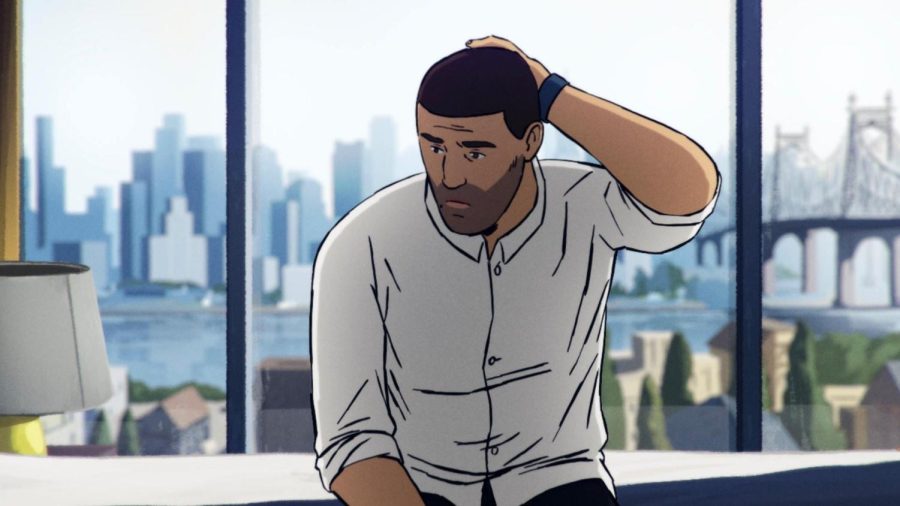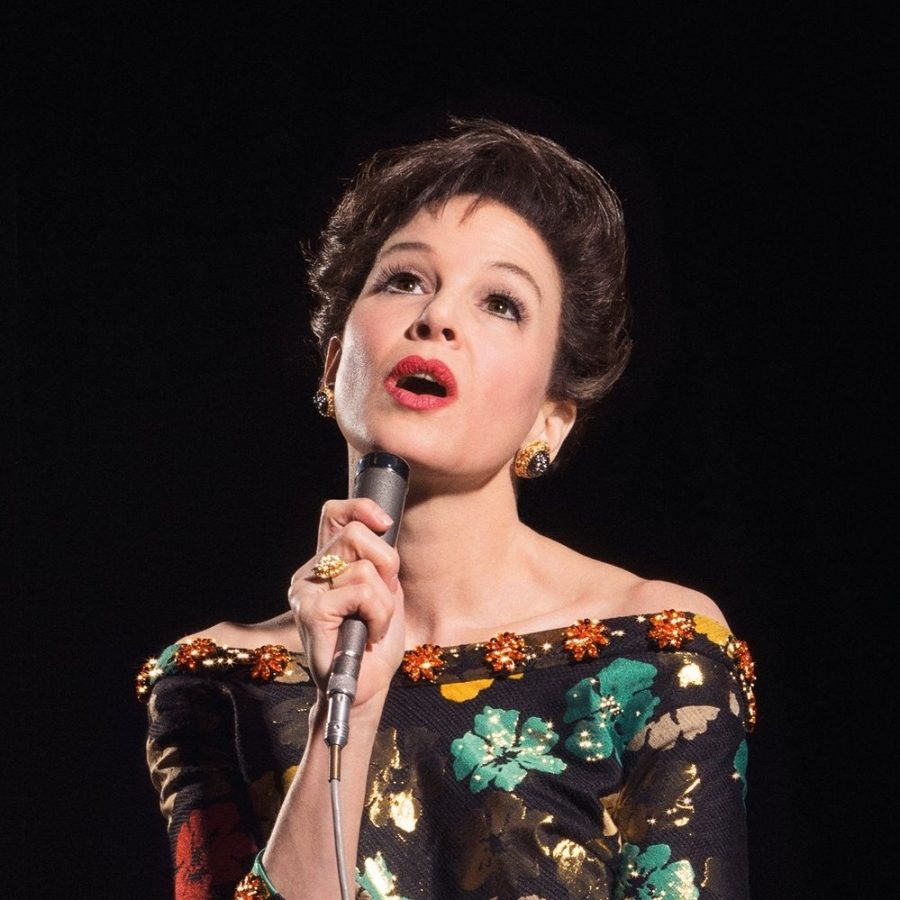“Flee” uses both animation and documentary filmmaking to tell a true story. It won the Grand Jury Prize at the 2021 Sundance Festival and is nominated for both best documentary and animated film at the BAFTAs and animated feature film, and best documentary (feature) and international feature film at the Oscars.
The film tells the story of Amin, a man born in Afghanistan, and his experience as a refugee moving to and from various places. Amin deals with moving around, being away from his family and his fear of being outed as gay.
The film uses techniques you would see in a live-action documentary. An animated version of the director, Jonas Poher Rasmussen, appears in the film interviewing Amin. An animated film slate is shown with the film’s title. The film is very much like a biography or memoir. Instead of telling the story going from Amin’s childhood to the present, the film intersplices it with different small scenes from Amin’s present as an adult. As a younger Amin, he is navigating his situation and trying to get to safer countries. The film also takes time to show Amin and his husband looking for a home to buy. The structure of the film removes some suspense about whether characters will survive or not, but it also shows how different events and memories have stuck with Amin.
The characters are never shown in live action. Events showing Amin use 2D animation. The art style used for most of the film is realistic and in color. The animation of character movements is sometimes noticeably not smooth, but it doesn’t take away from the film as a whole. This art style is good at making the different locations feel distinct. In Afghanistan, the vivid colors give a nostalgic feel to his childhood home. In Russia, Amin lives in a brutalist apartment building in a bleak landscape.
For some memories Amin gives, a rough black and white sketch art style is used similar to the “Take on Me” music video. He listens to “Take on Me” in what he recalls as his earliest memory, though that scene uses the film’s main art style. This sketchbook art style is often used for intensely powerful emotions or moments in his life, one use being when he remembers when his boyfriend threatened to expose Amin’s secrets.
While all the people the film focuses on are animated, live-action documentary footage and newsreels are used of historical events to help explain historical context. Amin goes through some noteworthy periods in history, including from Soviet Afghanistan to the Mujahedeen in Afghanistan and the opening of the first McDonald’s in Russia.
While the film is structured like a documentary and intentionally goes out of its way to mimic documentary techniques, there are key differences. The film is not presenting an argument or trying to make a point. It certainly shows the hardships refugees face, but it never makes a broader point. There are no statistics shown, and it does not make any arguments about immigration policy. It’s just about Amin’s experience.
While the film does focus on Amin’s life, there is some information missing. The audience never really gets to see when Amin and the director first met. The director has known Amin since the two were teenagers. We see when the director first saw Amin, but we do not get their interaction there. Likewise, I feel Amin’s family members could have been given a bit more character. At points, there seems to be a distinction between experiencing the story with them and it being told to you like you would read in a nonfiction book or article.
There are scenes where the film hits hard emotionally. In one scene, Amin meets a fellow refugee he never sees again, and gets something from him that you can see when Amin is older. Another scene I thought was quite impactful, involves a group of refugees on a small ship that meets a large cruise ship. That scene deals with the expectations the refugees have and how people treat them.
I am glad there are animated films dealing with these topics. There is no rule that says documentaries need to be about broader topics and make a point. Maybe the film would have been stronger if it went more in its narrative direction or more in its documentary direction, but It spotlights many of the hardships refugees face through Amin’s experiences. If you like memoirs and autobiographies, you may like this movie.
“Flee” is playing at Amherst Cinema.
Scott Lerer can be reached at [email protected].
















